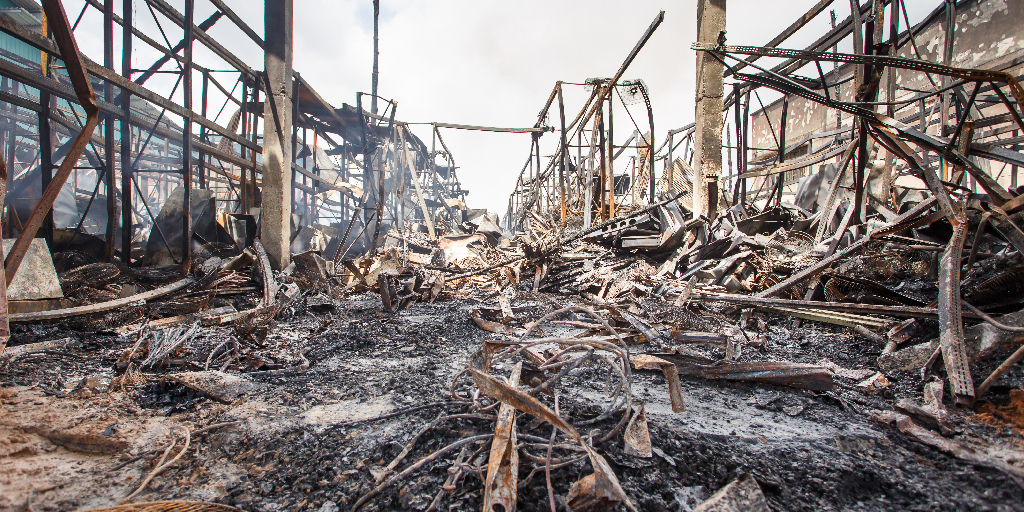What happens if a fire or other calamity destroys a commercial tenant’s premises or property located on the premises? The Landlord, the Tenant and their advisors will certainly review various provisions of the lease, such as requirements for each of the parties to obtain insurance, indemnity clauses, and the obligations of the parties with respect to repairs.
What may surprise some is that the courts (if it comes to that) may also consider leases for other units in the same building, as the court did in Deslaurier Custom Cabinets Inc. v. 1728106 Ontario Inc., 2014 ONSC 5148 (Sup. Ct.).
In Deslaurier, a fire caused by the Landlord’s contractor destroyed the building. The Tenant’s insurance was not sufficient to cover all of its losses. The Tenant made a claim against the Landlord for the uninsured loss, relying on the lease provision that required the Landlord to indemnify the Tenant “with respect to damages to the Premises as a result of the act, default or negligence of the Landlord or its contractors, invitees or licensees.”
In order to interpret the lease as a whole and give effect to all of its provisions (following a basic principle of contractual interpretation), the court examined leases for other units in the same building as evidence of the circumstances surrounding the making of the Deslaurier lease. Since these other leases contained only the usual requirement for the Tenant to indemnify the Landlord and not vice versa, the court found that the parties must have intended for the Tenant to have a right not granted to other tenants. It, therefore, rejected the Landlord’s argument that it was relieved from liability under the lease because of a requirement on the Tenant to obtain fire insurance.
It’s also interesting to note that the court rejected the Landlord’s interpretation of the indemnity provision as applying to the rentable space only, and not to Tenant’s property. (Recall, the phrase was “with respect to damages to the Premises.”) The court held that this interpretation would render this portion of the clause meaningless, as it would provide the Tenant with indemnification for something in which it has no interest, and therefore found that the Landlord was liable for the Tenant’s losses.
This case underscores the importance of careful drafting when it comes to complex documents such as commercial leases so that ambiguities do not lead to a court considering documents that a party never intended to apply to a transaction.
For more information, please contact Katya Permiakova at 613-563-6694 or by email at [email protected].







